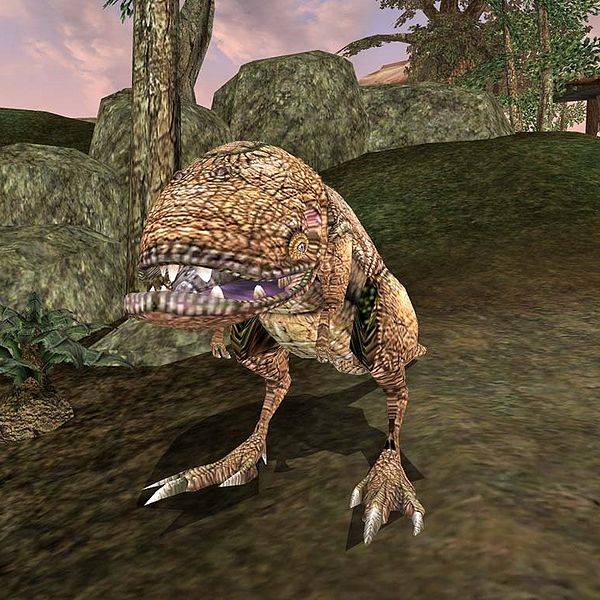TES I: Arena - meh, maybe at the time it was okay, but I played it too late
TES II: Daggerfall - cool tech back at the time, gets boring after a while due to all random generation, better just keep to main quest
TES III: Morrowind - cool atmosphere, generally alright and worth to give it a playthrough, cool lore, crap combat
TES III: Tribunal - Boring dungeon crawling with crap Morrowind combat
TES III: Bloodmoon - Interesting and atmosphering expansion, probably the best TES part
TES IV: Oblivion - decline overall, but still has some interesting quests and combat is better, avoid main quest at all times, destroyed all lore
TES IV: Shivering Isles - a bit too bizzare, but it's just more of Oblivion
TES V: Skyrim - Oblivion but with anything interesting removed, complete cliche fantasy borefest
Not a bad summary but i'd like to point out that Daggerfall had a killer atmosphere, both in the towns and the dungeons.
Also, whether one likes the random generation or not, the dungeons got some points for me for being truly massive, and coming out of them was a truly unique experience.
Lastly, Daggerfall is mechanically the most coherent one because they went all in with the basic concept of randomly generated content. Level scaling made sense in Daggerfall, while there was no reason it had to be in Oblivion. The wiki style dialog also made sense in Daggerfall, while again there was no reason for it to be in Morrowind. Daggerfall had a clear vision of what it wanted to be where as those that came after it kept trying to retain some of its elements for no particular reason.
Firstly, it's a fitting quote to start with because I think there's a clear demarcation line between Daggerfall vs Morrowind enjoyers. I'm firmly on the side of Morrowind because for all it's mechanical uniqueness, lore-wise Daggerfall is mostly still a regular out-of-the-mill DnD copy. Morrowind however, for all it's flaws and half-leftovers from Daggerfall that make little sense (*like constantly resting for 16 hours in caves after every stab wound, which only made sense in TES 2 where you had limited time to turn in a quest; and the decline of GOTY edition, where you're immediately ultra-rich if you survive Dark Brotherhood assassins and sell their loot.) still represents the absolute peak of CRPG, where it comes to world-building and lore, this side of Planescape: Torment, down to the very
metaphysics, to the point I struggle to find any contender.
Now, no Codexer, and maybe 5 people on the entire planet in general, played every TES game, simply because there were weird experiments like, uhm... Shadowkey for Nokia N-Gage? or TES Legends TCG game, that while important lore-wise, are such a bizarre idea I can't see anyone bothering to do more than reading a wiki summary.
That said, I'll try to elaborate on this list:
TES I: Arena
TES II: Daggerfall - I'll bundle those 2 together, since it's a bit like FO3 and F:NV situation - to an untrained eye, they look almost the same, only the 2nd one is bigger and better in every way. And yes, I'm aware of the limitations of such metaphor. The only thing Arena has going for it is the fact it's only one of 2 games where you're able to visit the entire Tamriel, but after Daggerfall, there's little reason to bother with Arena. Like every over-ambitious milestone, it has its limitations, but I can't recall a game that is anything like TES 2. Even if you're a boomer who struggles to run older games freaking out on modern tech, Daggerfall Unity completely solves such issues for you, so there's no reason to skip it.
TES: Battlespire - people tend to skip those side. There's a great let's play here on Codex, I'll try to find a link to it later.
TES: Redguard - the clear demarcation line that does away with "TES: DnD derivative #1407" for "TES: meta-oniric substance-fueled esoteric fever dream". It's where legendary Michael Kirkrbide (there are more unsung heroes in the background, like Ken Rolston) comes in, alongside Pocket Guide to the Empire, 1st edition bundled with game manual. If you see people claiming "In Skyrim Nords are just generic vikings, but in lore they're so much more!", that's what they're referring to. Oh, the game itself? It sucks. Great setting, good plot, awful "we have Tomb Raider at home" gameplay. You can check it out for the lulz, just don't be surprised you'll drop it after 15mins.
TES: Shadowkey - it's the Nokia N-Gage game. Sorry, I can't do much more here than refer to some wiki summary.
TES III: Morrowind: The absolute high point of TES, CPRG worldbuilding, crafting a truly alien and unique fantasy world, etc. If it's the first time you hear of it, SsethTzeentach review is a good first point of contact.
Why is the lore so great, and the next best thing since Tolkien sliced bread himself?
This is a good start to understand it:
https://fallingawkwardly.wordpress.com/2010/08/29/the-metaphysics-of-morrowind-part-1/
TES III: Tribunal
TES III: Bloodmoon - some people will try to convince you there are Morrowind expansions that exist. They do not. Preposterous! Move along, citizen.
TES IV: Oblivion - aside from mentioning Vault Dweller's review, in many ways Codex's rise to fame/infamy, more than enough books were written about it, even ITT for me to add anything. It's also hard to find many positives about this aforementioned Patient Zero of RPG decline (fantastic metaphor). The most unforgivable thing about this is, at least on a superficial level, complete castration of what makes (Cyrodiil, which was described as a Byzantine "endless jungle", turned into the blandest of bland Medieval Europe. Funnily enough, in TES: Online Gold Road that came out a week ago, the jungle is back

)
I'll however note one positive rarely mentioned: many side-quests' premises and scripting/"quest stages"-based design were very neat.
TES IV: Knights of the Nine - Oblivion's medieval-esque blandness taken to the extreme. The only notable thing is Kirkbride's contributions, but they were limited mostly to new in-game books like Song of Pelinal.
TES IV: Shivering Isles - if you're planning on checking out TES IV at all, it's probably the only reason to do so. The game is batshit insane, but if you appreciate it's absurdist humor, ranging from Monty Python on acid to lol-random non-sequiturs, it may just be your cup of tea. Just be sure to mod some overhaul on top of it, or you'll die of boredom.
TES V: same with Oblivion, it's such a "cultural" (and I use that term very loosely, obviously) milestone, and a cash cow for Bethesda and countless youtubers ("10 More Skyrim Details you didn't notice! Part 468") there's little to say anymore. It's a "rotten compromise" between Morrowind and Oblivion that pulls the breaks in some ways (setting's blandness, respect to its own lore), goes full speed on others (oversimplification, copy-pasted dungeons, etc).
TES V: Dawnguard: ...
TES V: Dragonborn - you go back to Morrowind and visit Apocrypha (which is one of the better translations of "Lovecraftian" into game format. Well, they all suck except for Bloodborne, but still). The absolute high point of Skyrim. What is it with expansions/DLCs often being so much more interesting than the base game?
TES: Legends - see: Shadowkey. Actually, I played it a bit before it stopped being developed (I even got a free Dagoth Ur card from one of those booster packs! Talk about being blessed). If you're not averse to TCG format, it may be worth checking out, as it's a "story driven" one (as in, expansions come as narrative sets of encounters). Some cool stories, like that tragic Dunmer father on Shivering Isles.
TES Online - it's the 2nd game that let's you visit the entire Tamriel, but since it's an MMO, by and of itself it's hard to recommend just "checking out" this one, or finding a Codexer who did just that. Most who do, tend to not bother for long - overland content is difficulty: braindead, you can be overflooded with quests that, sure, are voice-acted, but the dialogues are boring and full of irrelevant infodumps, and the time commitment required to really appreciate what it does well and where is massive. Those things are enough to be a hard NO for most people, understandably so.
That said, lore-wise it's the next best thing after Morrowind, where it's Kirkbride-esque weirdness is on full display, and if you're really into TES universe and stick with it, you'll can see some of the best TES content and truly memorable stories. I recommend to at least check out some Let's Play on the Clockwork City DLC.







![Glory to Codexia! [2012] Codex 2012](/forums/smiles/campaign_tags/campaign_slushfund2012.png)
















